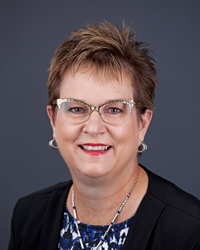Published on
Updated on
Published 3/03/2023
Story contact: Nicholas Childress, CVMMarCom@missouri.edu

Wendy Picking, PhD, a professor of veterinary pathobiology at the University of Missouri College of Veterinary Medicine and a recent Mizzou Forward hire, recently secured a $3.8 million grant from the National Institute of Allergy and Infectious Diseases. The grant will fund development of a vaccine to prevent colonization of Pseudomonas aeruginosa, a hospital-acquired infection that occurs after intubation or catheterization. This pathogen has become resistant to many of the antibiotics used to treat it, and there are no new antibiotics in the pipeline.
Picking says the resistance to antibiotics has created the need to develop a vaccine. “Pseudomonas aeruginosa infection can cause severe infections in burns or wounds, which are especially problematic in military personnel, as well as other front-line workers,” said Picking. “The grant is to develop a vaccine to prevent these infections.”
The lab will use rodent models to assess the protective efficacy of the vaccine. The goal is to develop a broadly protective vaccine formulation by assessing the protective immune response in rodents. Knowing the vaccine efficacy and immune response will allow Picking to finalize the vaccine formulation and demonstrate the potential utility of that formulation in people. “Furthermore, we will establish the correlates of protection in these rodents that can then be used in humans during clinical trials,” said Picking.
Age is a significant factor in contracting Pseudomonas aeruginosa infection. According to the grant abstract, there is a significant increase in morbidity and mortality after the age of 60 years old. Due to this, Picking is excited that this grant will help fund the development of the vaccine. “The single most important risk factor for contracting a Pseudomonas aeruginosa infection is age,” she said. “Since all of us age, this vaccine would prevent many of the debilitating and chronic infections that impact older Americans as we have to check into hospitals for surgeries and other events.”